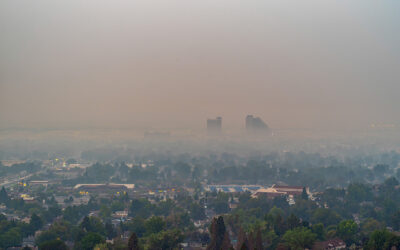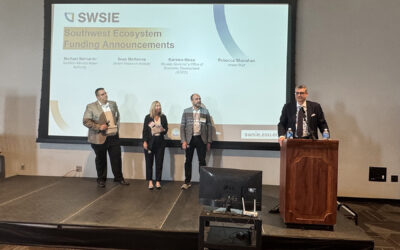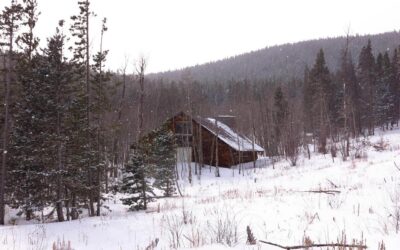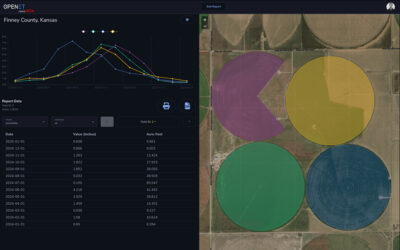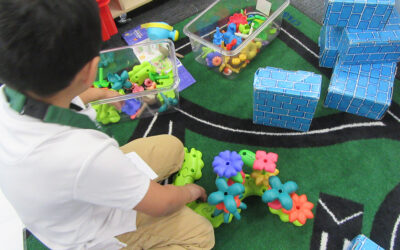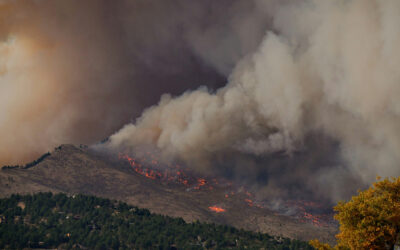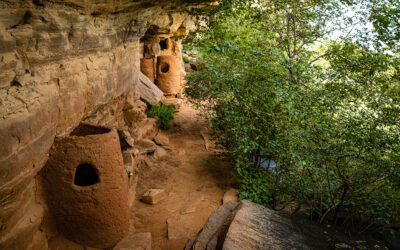The comprehensive research examined air quality in Reno, Nevada during 106 wildfires to illuminate the atmospheric and public health impacts of smoke. The research, published in April’s issue of Environmental Science: Atmospheres, measured air quality in Reno, Nevada over a 19 month period between 2017 and 2020 to capture both smoky and clear days.
$1.8 million GOED Investment in WaterStart Marks Decisive Support for the Development of Water Technologies in Nevada and the Southwest
The investment will substantially strengthen the NSF Futures Engine in the Southwest, enhancing economic growth and job creation. WaterStart was created by DRI, with support from the Nevada Governor’s Office of Economic Development (GOED).
New Study Finds Rocky Mountain Snow Contamination
An examination of Rocky Mountain snow finds higher contamination levels of mercury and others metals in the northern part of the range, consistent with increased current and historical mining in the region. The study, published in the May issue of the journal Environmental Pollution, examined contamination levels for Mercury, Zinc, Cadmium and Antimony from nearly 50 sites in the Rocky Mountains.
Blurring the Line Between Rain and Snow: The Limits of Meteorological Classification
A new study published in Nature Communications utilizes insights gleaned from DRI’s Mountain Rain or Snow project to evaluate why traditional weather forecasting struggles to identify the rain/snow transition line. The research was possible because thousands of community members across the U.S. contributed more than 40 thousand observations of the type of precipitation falling at their location.
Kristin VanderMolen Receives 2025 Rising Researcher Award from the NSHE Board of Regents
DRI scientist Kristin VanderMolen, Ph.D., has been awarded the 2025 Rising Researcher Award in recognition of her outstanding early-career accomplishments and potential for advancing scientific knowledge in the field of applied anthropology.
FARMing with Data: OpenET Launches New Tool for Farmers and Ranchers
A NASA, DRI, and U.S. Geological Survey (USGS)-supported research and development team is making it easier for farmers and ranchers to manage their water resources. The team, called OpenET, created the Farm and Ranch Management Support (FARMS) tool, which puts timely, high-resolution water data directly in the hands of individuals and small farm operators.
DRI Invites Nevada Families to Science and Literacy Events for Pre-K Students
DRI’s STEM Education Program is holding free events focused on developing literacy through engaging science activities for Pre-K children 5 and younger throughout Nevada. Through hands-on experiments, story time, and interactive games, the events will bring ecology and electricity to life for the whole family. Each child will also receive free books to take home (while supplies last).
Weather Whiplash is Amplifying Wildfire Risk
While fires engulfed large swaths of southern California in early January, destroying more than 16,000 structures, taking at least 29 lives, and choking the air with smoke, a new study about weather whiplash was released. Co-authored by DRI’s Christine Albano, the research examined how a warming climate is creating an atmosphere more prone to extreme weather. Now, Albano and her co-authors have released a new report that applies the knowledge gained from January’s study to the recent fires, analyzing the broader climatic context that contributed to the unprecedented infernos.
New Study Traces Indigenous Population Shifts in North America Before Europeans
DRI’s Erick Robinson, Associate Research Professor of Climate and Archaeology, co-authored a new study that provides insight into North America’s Indigenous communities prior to European contact. The research found that although Indigenous populations varied regionally, the continent saw a population peak around 1150 A.D. before experiencing declines, likely stemming from drought, disease, emigration and warfare. A brief recovery around 1500 A.D. was followed by a sharp decrease upon the arrival of Europeans.
Floods, Droughts, Then Fires: Hydroclimate Whiplash is Speeding up Globally
DRI’s Christine Albano co-authored a new study that examines how a warming climate is creating an atmosphere more prone to extreme weather. This “hydroclimate whiplash” is evident in California’s recent weather, with winters filled with repeated atmospheric river storms driving the plant growth that the dry summers then parched, providing plentiful fuel for explosive wildfires.
